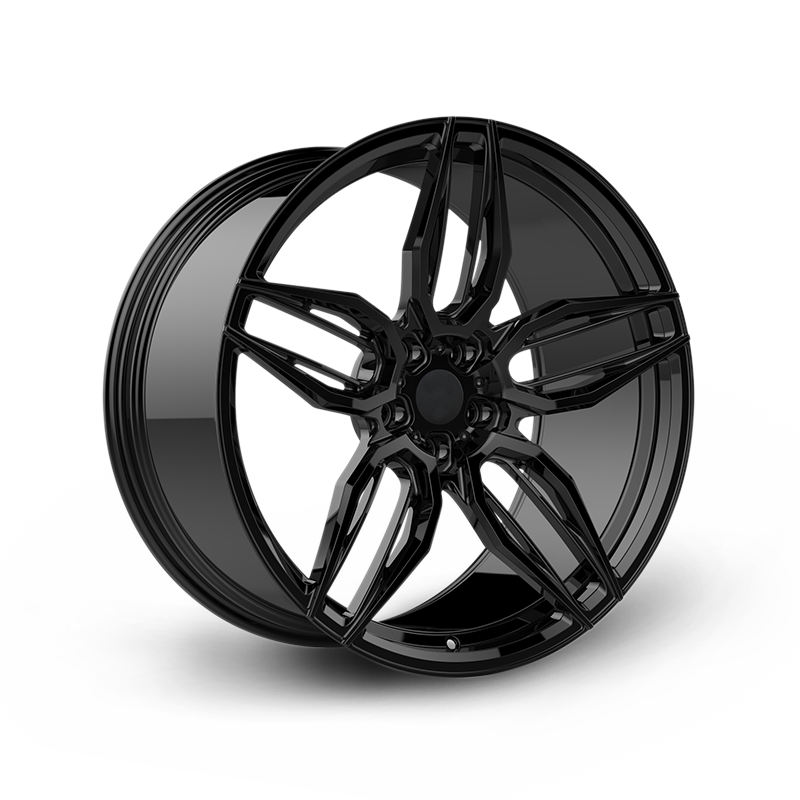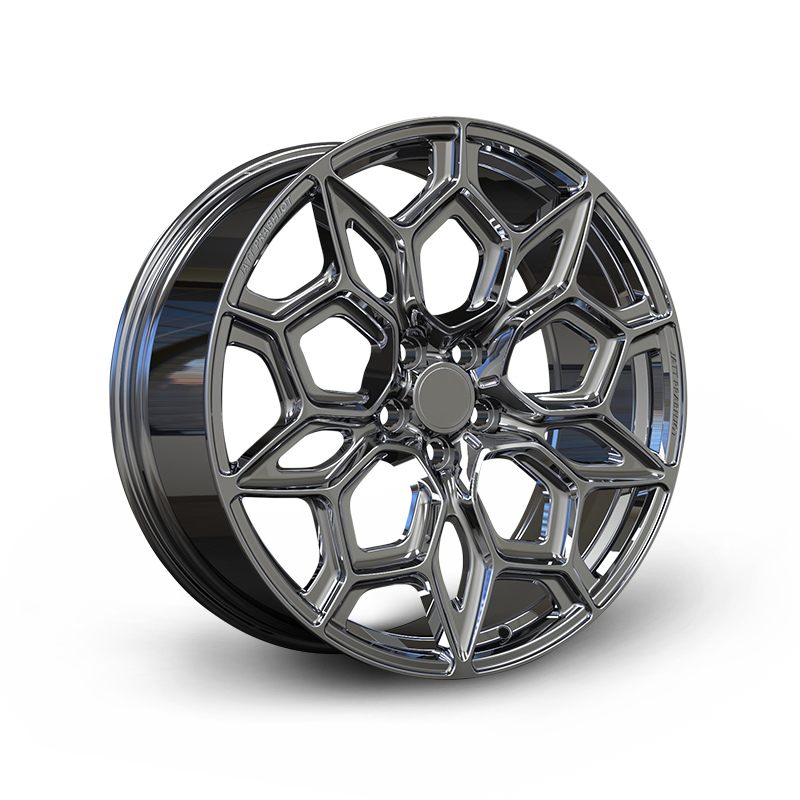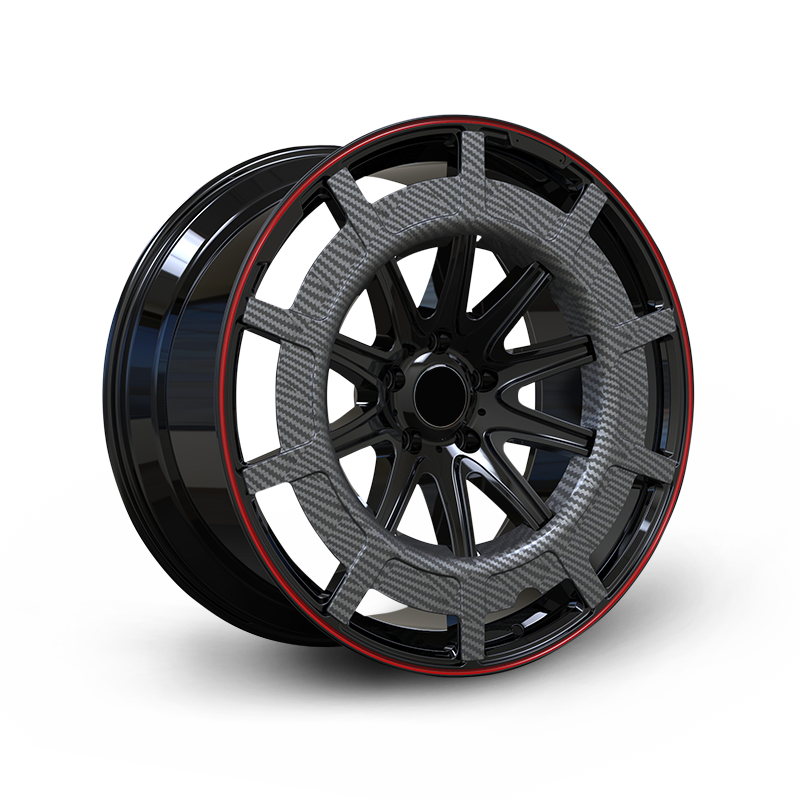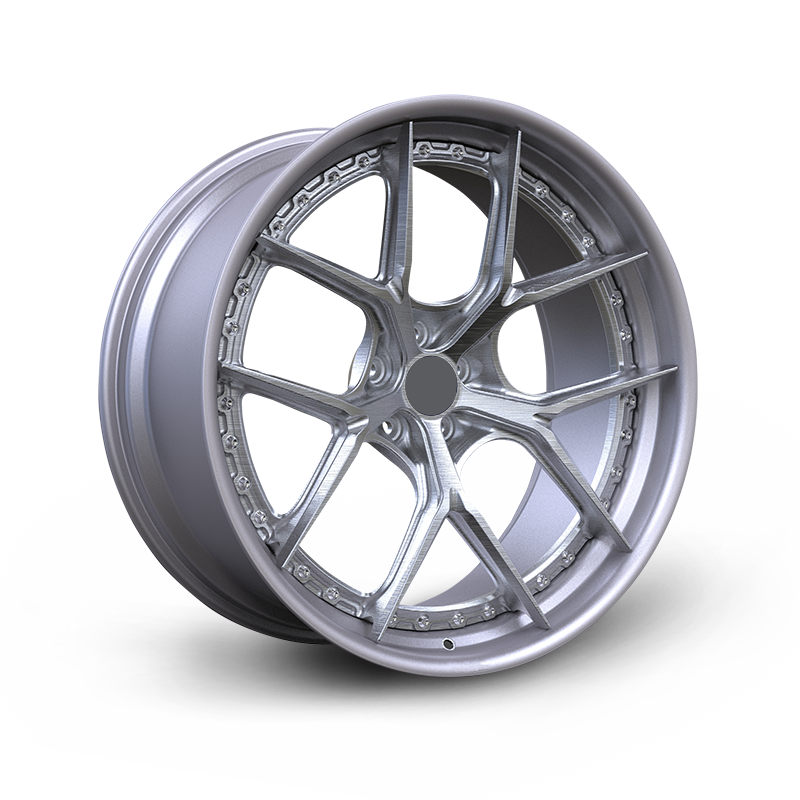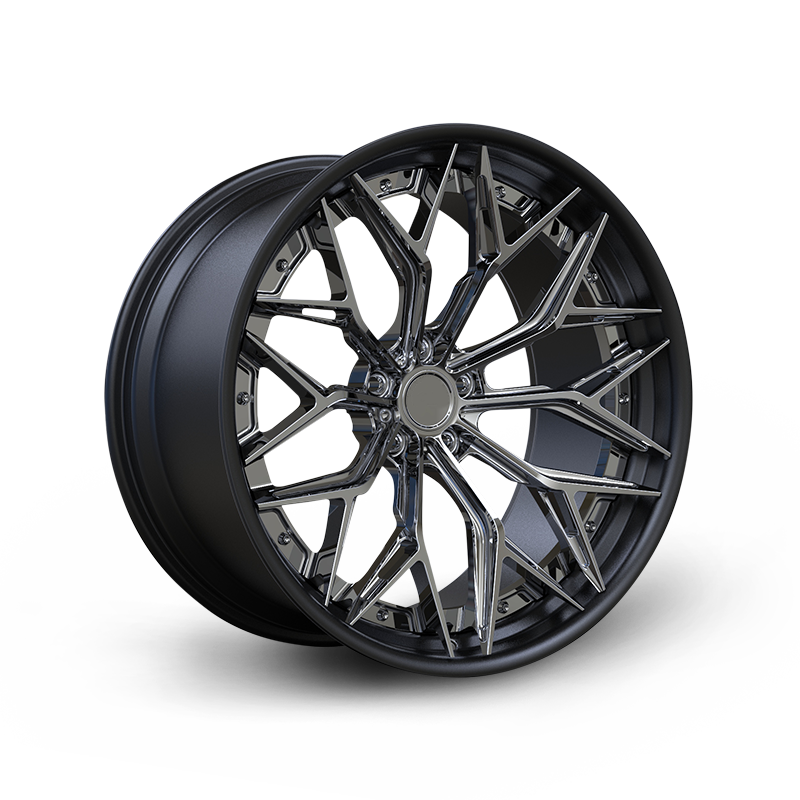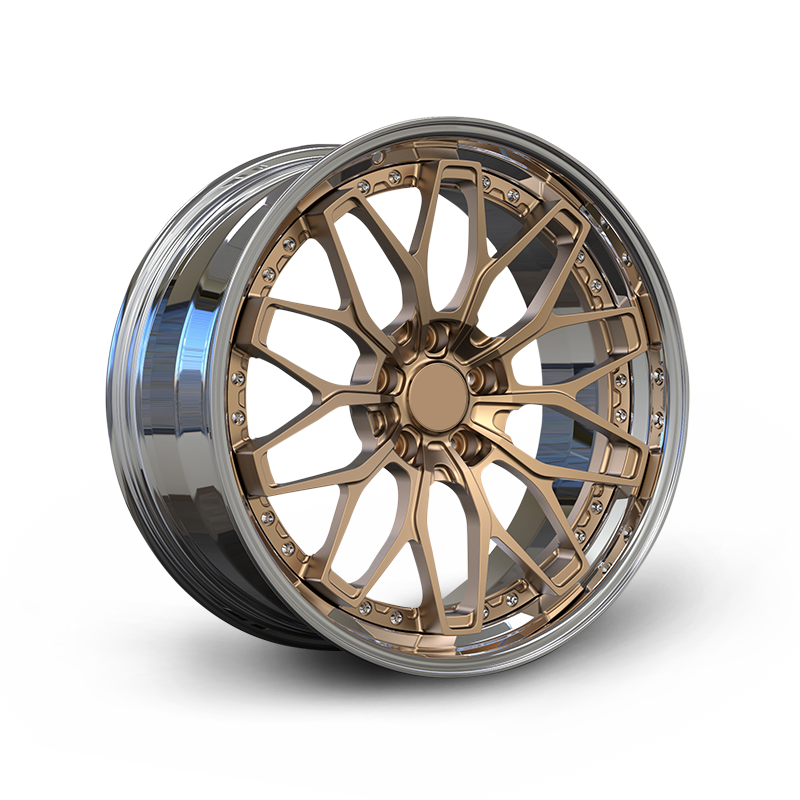Share Some Tips for Maintaining and Cleaning Deep Concave Forged Wheels
Deep concave forged wheels are designed with a pronounced inward curve, which gives them a distinctive, aggressive look and can contribute to improved vehicle dynamics. However, this design also introduces some challenges in terms of maintenance and cleaning.
Regular Cleaning Routine
1. Use the Right Cleaning Products: To preserve the finish of deep concave forged wheels, it's essential to use cleaning products specifically designed for alloy or forged wheels. Avoid abrasive cleaners or harsh chemicals that can damage the wheel's surface. Opt for a pH-balanced wheel cleaner that is gentle yet effective in removing brake dust and grime.
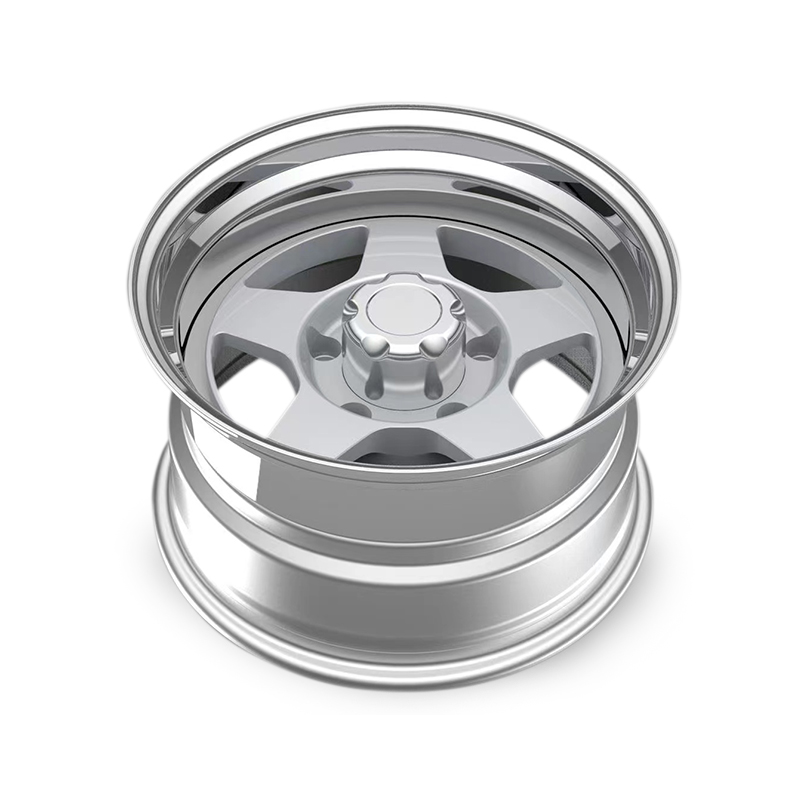
2. Gentle Washing Techniques: Begin by rinsing the wheels with water to remove loose dirt and debris. Apply the wheel cleaner according to the manufacturer's instructions and let it sit for a few minutes to break down the contaminants. Use a soft-bristle brush or microfiber cloth to gently scrub the wheels, paying extra attention to the deep concave areas where grime can accumulate. For larger wheels like 22 inch deep concave wheels, a wheel cleaning brush with an extended handle can be particularly useful.
3. Thorough Rinsing and Drying: After scrubbing, rinse the wheels thoroughly with water to ensure that all cleaning products and loosened dirt are washed away. Avoid letting the cleaner dry on the wheel surface, as this can cause streaks or spots. Dry the wheels with a clean microfiber towel to prevent water spots and maintain a pristine finish.
Advanced Cleaning Tips
1. Detailing the Deep Concave Areas: The deep concave design of these wheels means that cleaning the inner sections can be challenging. Use a small, soft-bristle brush to reach into these areas. For truck wheels or larger sizes, such as deep concave truck wheels, consider using a detailing brush set that includes various sizes and shapes to access hard-to-reach spots effectively.
2. Dealing with Stubborn Contaminants: For stubborn brake dust or road tar, apply a specialized wheel cleaner that is formulated to tackle these tough contaminants. Allow the cleaner to sit for a bit longer in these areas, but be sure not to let it dry. Use a soft brush or microfiber towel to gently agitate and remove the buildup.
3. Protective Coatings: Applying a protective coating or sealant to deep concave forged wheels can help reduce the accumulation of dirt and make future cleaning easier. Wheel sealants create a protective barrier that repels brake dust and road grime, making the wheels easier to clean and maintain. Choose a sealant that is compatible with forged wheels and follow the application instructions carefully.
Maintaining the Finish
1. Regular Inspections: Periodically inspect your deep concave forged wheels for signs of damage, such as chips or scratches. Address any issues promptly to prevent further damage. Regular inspections also allow you to spot and address corrosion or other wear and tear before they become more serious problems.
2. Avoid Harsh Environments: Minimize exposure to harsh environments, such as road salts and weather conditions, which can accelerate wear and corrosion. If you frequently drive in such conditions, consider applying a protective wax or coating to shield the wheels from environmental damage.
3. Proper Storage: If you need to store your wheels, such as during off-seasons or between vehicle swaps, ensure they are cleaned thoroughly and stored in a dry, cool place. Avoid stacking them directly on top of one another, as this can cause damage to the wheel's finish.
Addressing Common Issues
1. Brake Dust Buildup: Deep concave forged wheels are more prone to brake dust buildup due to their design. Regular cleaning and the use of a brake dust repellant can help manage this issue. For heavy-duty cleaning, a wheel-specific iron remover can be used to dissolve iron particles embedded in the wheel surface.
2. Scratches and Damage: If your wheels sustain scratches or damage, it's important to address them promptly to avoid rust or further deterioration. Light scratches can sometimes be polished out with a suitable metal polish, but deeper damage may require professional repair or refinishing.
3.Corrosion: While forged wheels are generally resistant to corrosion, exposure to road salts and other harsh chemicals can cause issues over time. Regular cleaning and the application of a protective coating can help prevent corrosion and maintain the wheels' appearance.
Proper care not only preserves the look of your wheels but also contributes to their longevity and overall functionality.
If you have any questions, please fill out the contact form at the bottom of the page and contact us.

